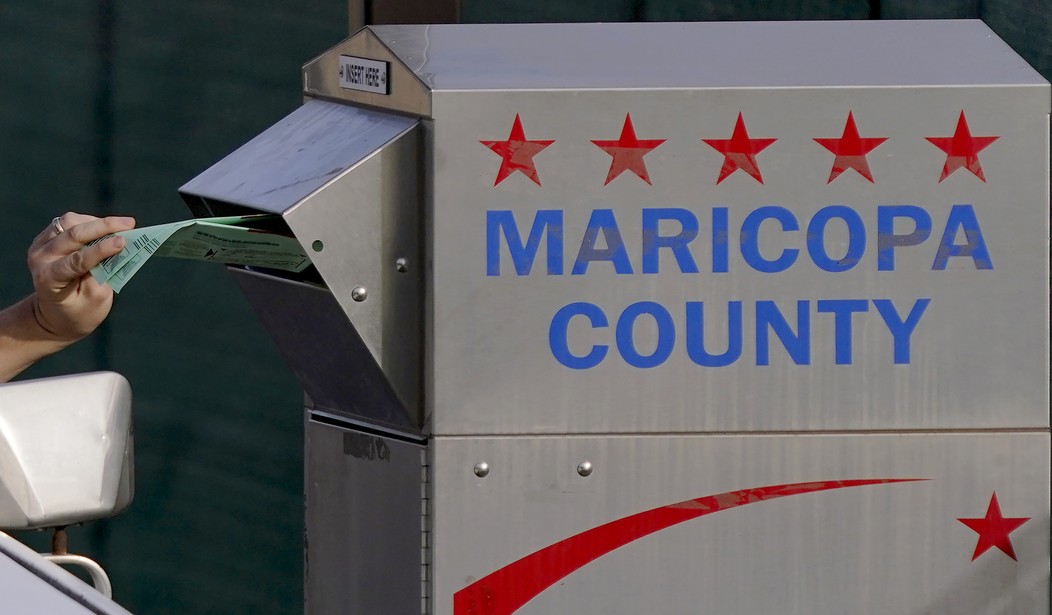We live in the greatest nation on earth and one of the longest-standing advanced democracies on the planet. We are the world's hegemonic superpower. We've landed men on the moon, for crying out loud. And yet, in parts of our country, it takes days – and even weeks – to tabulate votes after regularly-scheduled elections are held. In the UK, highly accurate exit polls project national electoral outcomes within minutes of polls closing. In Brazil's recent election, setting aside unsubstantiated claims of fraud by the losing side, well over 100,000,000 votes were all counted within hours nationwide.
But in a number of US jurisdictions, vote counting drags on forever, which too often fuels frustration and mistrust among voters. As of Thursday afternoon, hundreds of thousands of ballots are still outstanding in Arizona, where high-profile statewide races are hanging in the balance. Yes, days after the election, hundreds of thousands of votes have not even been initially counted yet. Observers, journalists, political junkies and voters await random count dumps from various counties, playing a guessing game about what sorts of votes from what types of places might benefit one party over the other. Similar lunacy is playing out in Nevada, where the gubernatorial contest and a nationally-critical Senate race are still in flux. Experts weigh in on outstanding ballots, scrutinizing and guessing how they might break when they finally arrive. Candidates publish social media posts offering their teams' takes on what it all means. How ridiculous.
And as of this writing, California's preposterously slow-moving system means more than 20 US House races are still uncalled and may be for some time. A closely watched mayoral race in Los Angeles is very close, and less than half of the expected vote has been counted. The result is people chewing over blue or red "mirages," with conspiracy theories circulating, as one side or the other watches illusory leads slip away (these effects can and do cut in either direction). Over the course of a few hours, this type of effect can be a rollercoaster of emotions. Over days, it's excruciating. It's harmful to public confidence and credibility. It's one thing for exceptionally tight races to come down to the wire, with re-canvassing and recounts taking extra time. Such things happen. But it should be inexcusable to not even have preliminary vote totals on election night itself.
There must be – and there is – a better way. After its infamous 2000 fiasco with hanging chads and weeks of turmoil (admittedly, over one of the closest and more consequential election results in American history), the state of Florida, then led by Gov. Jeb Bush, set out to overhaul its entire system. They studied and implemented best practices. The result, on full display during this current cycle? Easy, free, reliable voting through a variety of avenues, including plenty of early voting, with ballots tabulated in an efficient and sensible way. In a simplified nutshell, early and mail votes are counted as they come in. They are promptly announced upon polls closing, as election day ballots are rapidly and accurately counted and added to the totals. This often results in a brief "blue mirage" effect (though not this year, when everything was bright red), but only for a matter of minutes or a few hours. On Tuesday night, a massive, diverse battleground state spanning two time zones counted and reported well over seven million votes in very short order. Nearly all votes were in by 11 pm ET.
This is the way. We know it can be done because it is done. The federal government should not coerce states into running their elections in any manner other than what each states' representatives choose. But states ought to study what Florida has done and replicate it. The current patchwork features far too much dysfunctional madness. Trust in our system is fortified by the delivery of fast, accurate election results on election night. It's not rocket science. If Florida can do it, so can everyone else.
























